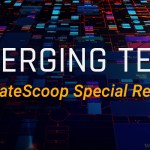

Urbanova
Spokane, Washington
Smart city collaboration
Urbanova is a living laboratory to design cities for the future. Located in the University District of Spokane, Washington.We harness data to gain insights, empower people and solve urban challenges in new ways. Our goals are healthier citizens, safer neighborhoods, smarter infrastructure, a more sustainable environment and a stronger economy.
We are bringing together leaders from local government, corporations, universities, and nonprofits to share data and identify solutions that are replicable, scalable and sustainable in other cities and communities. Our partners include the City of Spokane, Avista, Itron, McKinstry, Washington State University and The University District Development Association.
Urbanovas initial projects include:
Smart and connected streetlights addressing local concerns about the impact of air pollution on human health, Urbanova partners installed sensor packages on and are collecting data from 10 streetlights. These sensors are equipped with IoT technology that measures energy efficiency, movement, noiseand hyper-local air quality data. Soon 29 more streetlights will be added to the connected network, and traffic data will be integrated to inform more public health/safety solutions.
Shared energy economy model pilot Avista Utilities is working with several partners to demonstrate how various energy assets (generation and storage) can be shared and used for multiple purposes. The pilot aims to improve efficiency and grid resiliency while providing both private and public sector building owners better information for saving energy, operating buildings and reducing costs.
Gallup people-centered analysis project Urbanova is committed to addressing urban challenges that matter to citizens. We are partnering with Gallup to apply quantitative and qualitative analysis informed by local, regional and national data sources (including sensors) to help prioritize projects, engage citizens and effectively report outcomes. The next phase is to co-develop a system of citizen predictive analytics designed to be a transformative tool for government to understand citizen priorities and make more informed decisions.

Jonathan Reichental
Chief Information Officer, Palo Alto, California
Community sensors
I’m particularly interested in the possibilities of various sensor projects being deployed in our community. In particular, we’re using sensors on street lights and traffic signals to better understand traffic and the transportation environment such as parking space usage. This real-time data can help inform us about making our intersections safer; it can use machine learning to help with optimizing light signal management; or help identify parking patterns and needs. We’re also getting ready to use sensors to examine air quality in conjunction with partners across the Bay Area. In these projects we’ve made privacy a priority. The sensorization of cities is an emerging frontier that has the potential to be a game changer in a wide range of contexts.

David Greisen
CEO and Founder, Open Law Library
Open Law Platform
Open Law Librarys mission is to improve access to legal data for both governments and the public they serve. To fulfill our mission we built the Open Law Platform, a software suite that makes it easy and cost effective for governments to generate and capture human- and computer-readable legal data at scale.
Every year, governments generate millions of pages of laws, regulations and law-related documents like department policies, permitting forms, and legal interpretations. When this information is accessible, interlinked and searchable, it eases intra-governmental communication, makes possible inter-governmental flow of best-practices, and can help the public better understand and interact with their governments. Despite these benefits, most legal materials, if they are available at all, are scattered across many websites in formats that are not easily searchable, linkable, or computer readable i.e. they are not published as legal data.
The Open Law Platform puts governments in control of drafting and publishing their legal data making it easy to connect various sources of legal data, and publish legal data without restrictive copyrights.
The District of Columbia is already seeing the benefits of our platform, which they are using to publish and maintain over 20,000 pages of open legal data in XML. The website published from this XML contains a fully linked body of laws and code, making it easier for district employees and citizens to find the information they need. This data also creates a foundation for connecting to other District information, like legislative history and regulations.
The XML data also saves considerable resources down the line. The process of updating and linking the D.C. Code with newly passed laws is largely automated, reducing publication time from months to days and reducing errors. The Open Law Platform reduced the total resources required to create the D.C.Code by about 80 percent.

This story was featured in StateScoop Special Report: Emerging Tech (2018)






